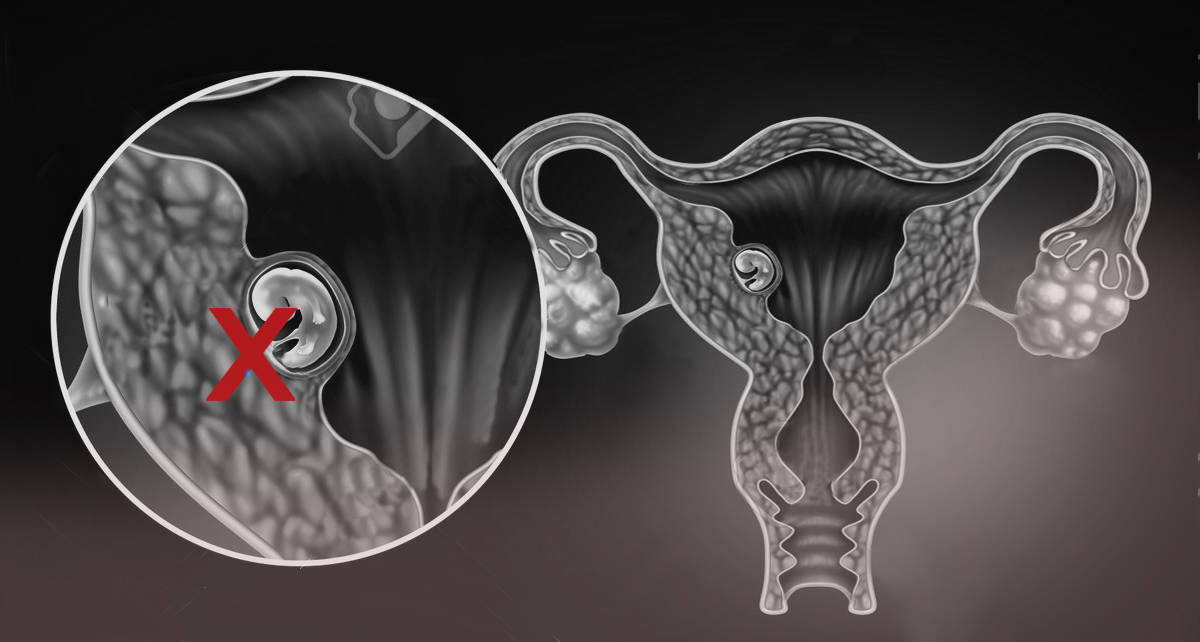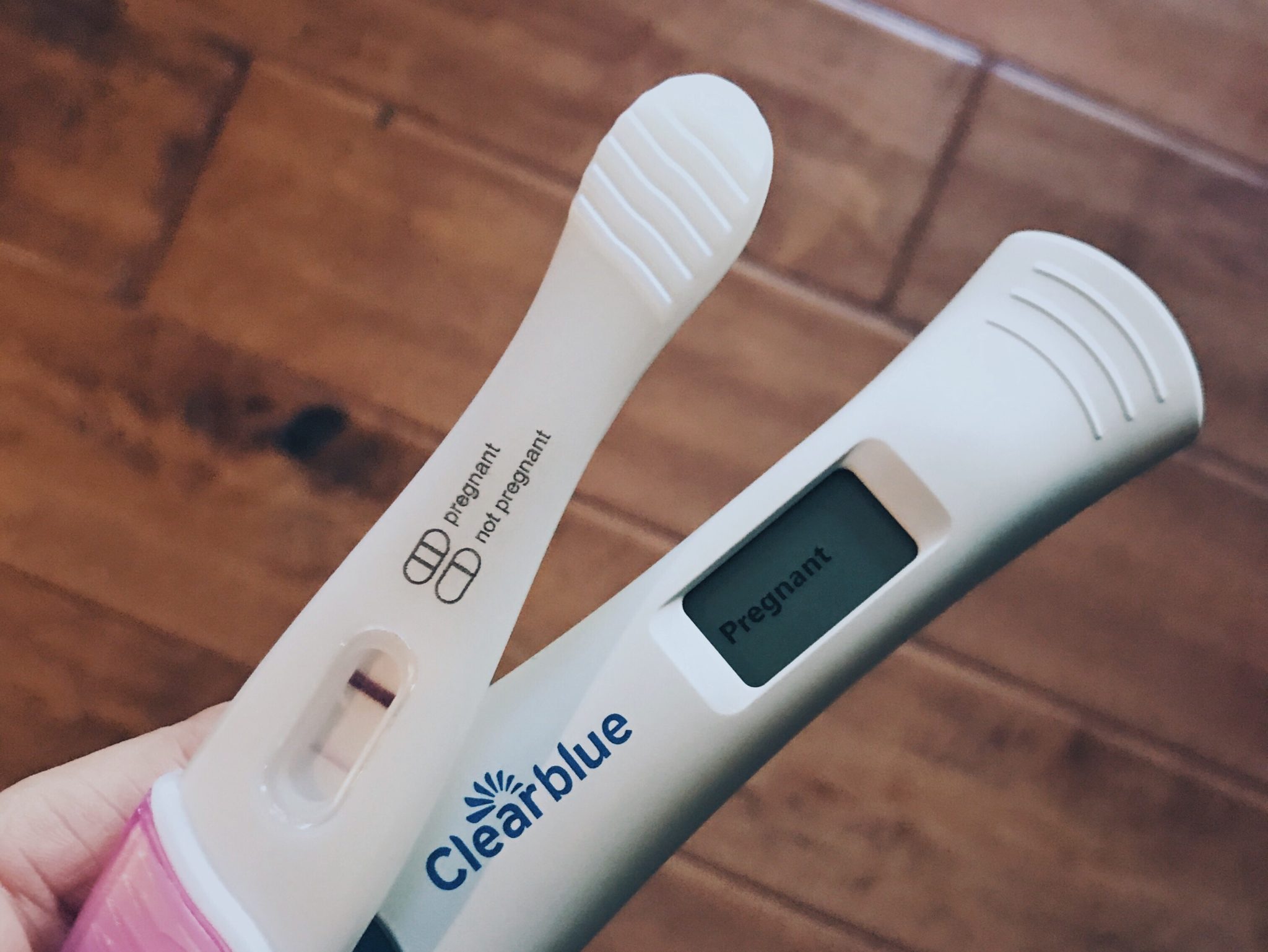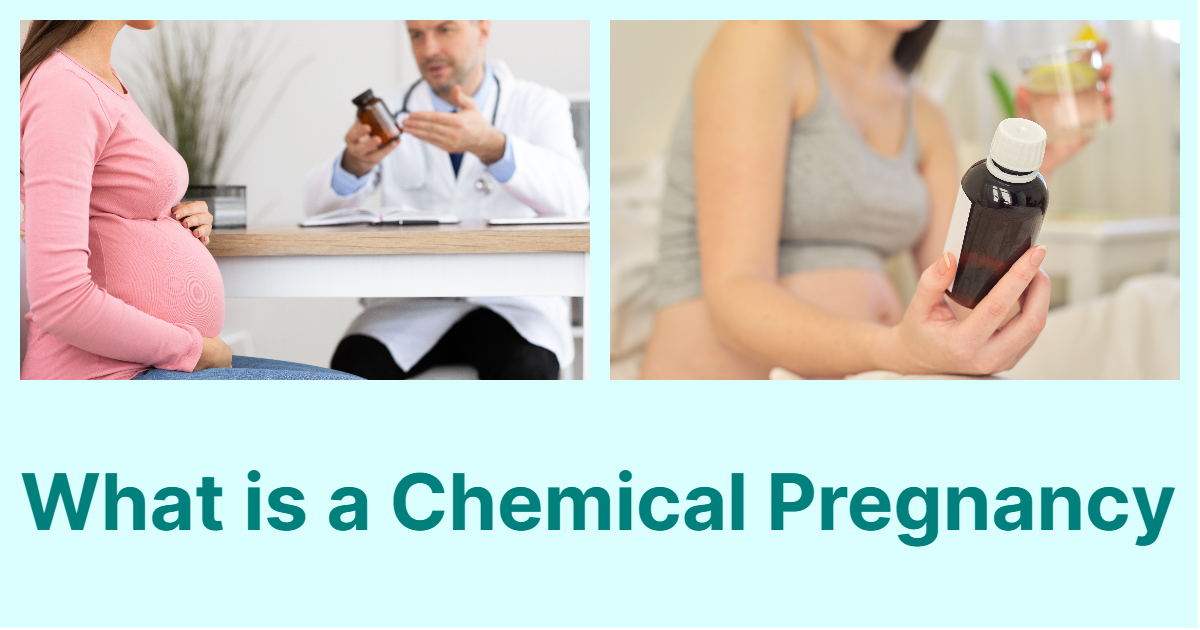What is a Chemical Pregnancy? A chemical pregnancy is an early miscarriage that occurs before the fifth week of pregnancy. It is detected through a positive pregnancy test, but no gestational sac develops.
Chemical pregnancies are common and often go unnoticed. They account for 50-75% of all miscarriages. Many women are unaware they were pregnant, as the miscarriage happens so early. Symptoms may include a heavier-than-normal period, cramping, and early pregnancy signs like breast tenderness.
Chemical pregnancies can be emotionally challenging, even if brief. Understanding the causes and seeking medical advice is important. Common causes include chromosomal abnormalities or issues with implantation. Women experiencing recurrent chemical pregnancies should consult a healthcare provider for further evaluation and support.

Credit: www.katieleecgc.com
Introduction To Chemical Pregnancy
A chemical pregnancy is a very early pregnancy loss. It occurs just after implantation. Many women may not even realize they were pregnant. This type of pregnancy loss happens before the fifth week. It is often mistaken for a late period.
The Basic Concept
In a chemical pregnancy, the fertilized egg implants in the uterus. However, it does not develop further. This means that the pregnancy is confirmed by a positive pregnancy test. But, it cannot be seen on an ultrasound. The pregnancy ends before it can be detected by a scan.
Chemical pregnancies are common. They account for up to 50-75% of all miscarriages. Most women do not know they have experienced one. They might only notice a heavier period.
Why It’s Called ‘chemical’
The term ‘chemical’ refers to the detection method. A chemical pregnancy is identified by a blood or urine test. These tests detect the hormone hCG (human chorionic gonadotropin). This hormone is produced after the embryo implants in the uterus.
The pregnancy is confirmed chemically, not visually. An ultrasound cannot detect it because it is too early. The embryo does not develop enough to be seen.
Here is a simple breakdown:
| Detection Method | What Happens |
|---|---|
| Blood or Urine Test | Detects hCG hormone |
| Ultrasound | Cannot detect the embryo |
The Science Behind Chemical Pregnancies
A chemical pregnancy is an early pregnancy loss. It happens shortly after implantation. Understanding the science behind it can help demystify this common occurrence.
Early Pregnancy Biology
In the earliest stages, pregnancy begins with fertilization. A sperm fertilizes an egg, forming a zygote. The zygote travels to the uterus. There, it implants in the uterine lining. This process typically takes about six to twelve days after ovulation.
Once implanted, the zygote begins to grow. It becomes an embryo. During this period, the embryo releases hCG (human chorionic gonadotropin). This hormone is detectable in pregnancy tests. A chemical pregnancy occurs when the embryo fails to grow properly. This results in a very early miscarriage.
Hormonal Dynamics
Hormones play a critical role in pregnancy. In a chemical pregnancy, hCG levels rise initially. They can be detected in early pregnancy tests. However, the levels of hCG do not continue to rise as they should. This indicates that the pregnancy is not progressing.
The drop in hCG levels signals the body to prepare for menstruation. This is why a chemical pregnancy often seems like a late period. Many women may not even realize they were briefly pregnant.
Understanding the hormonal dynamics can provide insight into the early stages of pregnancy. It can also help in recognizing the signs of a chemical pregnancy.
Identifying A Chemical Pregnancy
A chemical pregnancy is an early pregnancy loss that happens shortly after implantation. Many women may not realize they have experienced it. Understanding the signs and differences can help in identifying a chemical pregnancy.
Symptoms And Signs
Recognizing the symptoms of a chemical pregnancy is crucial. Here are some common signs:
- Mild spotting or bleeding that occurs around the time of your expected period.
- Positive pregnancy test followed by a negative one within a few days.
- Cramping similar to menstrual cramps.
- Low hCG levels in blood tests.
These symptoms can be subtle. Many women mistake them for a late or irregular period.
Differences From Other Early Pregnancy Losses
Distinguishing a chemical pregnancy from other early losses is essential. Below is a comparison table:
| Aspect | Chemical Pregnancy | Other Early Pregnancy Losses |
|---|---|---|
| Timing | Before the 5th week of pregnancy | After the 5th week of pregnancy |
| Symptoms | Mild spotting, cramping | Heavier bleeding, more intense cramping |
| Pregnancy Test | Positive then quickly negative | Remains positive until bleeding starts |
| hCG Levels | Low and decreasing | Initially rising then falling |
Understanding these differences can help in identifying a chemical pregnancy. If experiencing any of these symptoms, consult a healthcare provider.
Causes And Risk Factors
A chemical pregnancy is an early miscarriage. It usually happens before the fifth week of pregnancy. It is important to understand the causes and risk factors. Understanding these can help manage expectations and prepare for future pregnancies.
Genetic Factors
Genetic factors play a significant role in chemical pregnancies. Often, the embryo has chromosomal abnormalities. These abnormalities can prevent the embryo from developing properly. This results in an early miscarriage.
Here are some common genetic factors:
- Chromosomal abnormalities: This is the most common cause.
- Inherited genetic issues: Sometimes, parents pass on genetic problems.
- Random genetic mutations: These can occur during cell division.
Lifestyle And Environmental Influences
Lifestyle and environmental factors also contribute to chemical pregnancies. Certain habits and exposures increase the risk.
Key lifestyle and environmental risk factors include:
- Smoking: Smoking can harm reproductive health.
- Alcohol consumption: Drinking alcohol during early pregnancy is risky.
- Drug use: Using drugs can affect embryo development.
- Exposure to toxins: Toxins in the environment can pose risks.
- Poor diet: A lack of essential nutrients can affect pregnancy.
Maintaining a healthy lifestyle is crucial. It can help reduce the risk of a chemical pregnancy.
Diagnosis And Detection
Understanding the diagnosis and detection of a chemical pregnancy is crucial. It helps differentiate between a regular pregnancy and a chemical pregnancy. This section covers home pregnancy tests, clinical confirmation, and hCG levels.
Home Pregnancy Tests Vs. Clinical Confirmation
Home pregnancy tests can detect early pregnancies. These tests look for the presence of hCG (human chorionic gonadotropin) in the urine. A chemical pregnancy may show a faint positive line. This can be confusing and heartbreaking.
For more accurate results, clinical confirmation is necessary. Doctors use blood tests and ultrasounds. Blood tests measure hCG levels more precisely. Ultrasounds help confirm the absence of a gestational sac, indicating a chemical pregnancy.
Understanding Hcg Levels
hCG levels play a vital role in diagnosing a chemical pregnancy. Normal pregnancies show steadily rising hCG levels. In a chemical pregnancy, hCG levels rise but then fall quickly.
| hCG Level | Interpretation |
|---|---|
| Increasing | Normal Pregnancy |
| Decreasing | Chemical Pregnancy |
Regular blood tests track these hCG changes. Early detection helps in understanding and managing a chemical pregnancy.
- Consult a doctor for accurate diagnosis.
- Monitor hCG levels with blood tests.
- Understand that a faint positive line may indicate a chemical pregnancy.

Credit: www.institutobernabeu.com
Emotional And Psychological Impact
A chemical pregnancy can be an emotionally challenging experience. The term refers to a very early miscarriage. The pregnancy ends shortly after implantation. Many women may not even realize they were pregnant. Despite its early occurrence, the emotional and psychological impact can be profound. Understanding these feelings is vital for healing.
Coping With Loss
Coping with loss involves acknowledging your feelings. It’s normal to feel a mix of emotions. These can include sadness, anger, and confusion. Recognize that these emotions are valid. Allow yourself to grieve.
Consider journaling your thoughts. Writing can help process your emotions. Engaging in activities that bring you joy can also be beneficial. Surround yourself with supportive people. Share your experience with someone you trust.
Seeking Support And Counseling
Seeking support and counseling can be immensely helpful. Talking to a professional can provide much-needed guidance. A counselor can offer coping strategies. They can also help you understand your emotions better.
Joining a support group can also be beneficial. Connecting with others who have had similar experiences can offer comfort. It reminds you that you are not alone in this journey.
Here are some benefits of seeking support and counseling:
- Emotional validation: Your feelings are acknowledged and respected.
- Guidance on coping mechanisms: Learn effective ways to manage your emotions.
- Community support: Find solace in shared experiences.
- Professional advice: Receive expert guidance tailored to your needs.
Remember, it’s okay to ask for help. Taking care of your mental health is crucial. Prioritize your well-being during this time.
Future Pregnancies After A Chemical Pregnancy
Experiencing a chemical pregnancy can be emotionally challenging. Many wonder about future pregnancies after such an event. Understanding the chances and preparing for a healthy pregnancy is crucial. Below, we explore the key aspects to consider for future pregnancies after a chemical pregnancy.
Chances Of Recurrence
The chances of experiencing another chemical pregnancy are generally low. Most women will go on to have a successful pregnancy. Doctors suggest that a chemical pregnancy is a sign that conception is possible. This can be a positive indicator for future pregnancies.
Statistics show that about 50-75% of all miscarriages are chemical pregnancies. This high percentage is due to the early stage at which they occur. It’s important to remember that a single chemical pregnancy does not significantly increase the risk of future miscarriages.
Preparing For A Healthy Pregnancy
Taking steps to ensure a healthy pregnancy is essential. Here are some tips:
- Consult with your doctor for personalized advice.
- Maintain a balanced diet rich in vitamins and minerals.
- Ensure regular exercise to keep your body fit and healthy.
- Avoid smoking, alcohol, and other harmful substances.
- Take prenatal vitamins as recommended by your healthcare provider.
Monitoring your health and staying informed can make a big difference. Keep track of your menstrual cycle and any changes in your body. Communicate openly with your healthcare provider about any concerns.
| Action | Benefit |
|---|---|
| Regular Medical Checkups | Early detection of potential issues |
| Healthy Diet | Provides essential nutrients for pregnancy |
| Exercise | Boosts overall physical health |
| Stress Management | Improves mental well-being |
By following these steps, you can improve your chances of a healthy pregnancy. Remember, every pregnancy journey is unique. Stay positive and proactive for the best outcomes.
Advancements In Research And Medical Support
In recent years, there have been significant advancements in research and medical support for understanding chemical pregnancies. These advancements help in better diagnosis and care for those affected.
Recent Studies And Findings
Recent studies have shed light on the prevalence and causes of chemical pregnancies. Research indicates that chemical pregnancies may be more common than previously thought.
Scientists have found that up to 50-75% of all miscarriages are chemical pregnancies. This statistic highlights the need for further research and medical support.
A study in 2022 showed that genetic factors might play a significant role. This discovery has led to new approaches in understanding the underlying causes.
Improving Diagnosis And Care
Advancements in medical technology have improved early diagnosis of chemical pregnancies. New blood tests can detect pregnancy hormones much earlier than before.
Medical professionals now use ultrasound technology to provide better care. This technology helps in early detection and monitoring of chemical pregnancies.
Doctors also emphasize the importance of emotional support for those affected. Many healthcare providers now offer counseling and support groups.
| Aspect | Advancement |
|---|---|
| Detection | Early blood tests for pregnancy hormones |
| Monitoring | Enhanced ultrasound technology |
| Support | Emotional counseling and support groups |
Overall, these advancements have led to better outcomes and support for those experiencing chemical pregnancies. Continuous research and improved medical care are crucial for further progress.

Credit: antaihospitals.com
Frequently Asked Questions for What is a Chemical Pregnancy
How Do You Know If It’s A Chemical Pregnancy?
A chemical pregnancy is identified by a positive pregnancy test followed by a sudden heavy period and cramping.
Do You Bleed With Chemical Pregnancy?
Yes, bleeding often occurs with a chemical pregnancy. It resembles a heavy period and usually happens shortly after implantation.
Are You More Fertile After A Chemical Pregnancy?
Fertility typically remains unchanged after a chemical pregnancy. Consult a doctor for personalized advice and next steps.
How Quickly Does Hcg Drop After Chemical Pregnancy?
HCG levels drop rapidly after a chemical pregnancy, usually within a few days. The decrease varies per individual.
What Is A Chemical Pregnancy?
A chemical pregnancy is an early miscarriage that occurs before the fifth week of pregnancy.
How Common Are Chemical Pregnancies?
Chemical pregnancies are quite common, affecting up to 50% of first pregnancies.
What Causes A Chemical Pregnancy?
It is usually caused by chromosomal abnormalities in the fertilized egg.
What Are The Symptoms Of A Chemical Pregnancy?
Symptoms include a late period, heavier bleeding, and mild cramping.
How Is A Chemical Pregnancy Diagnosed?
A chemical pregnancy is diagnosed through blood tests showing low hCG levels.
Can A Chemical Pregnancy Affect Future Pregnancies?
No, it generally does not affect future pregnancies or fertility.
Conclusion of What is a Chemical Pregnancy
Understanding a chemical pregnancy helps in coping with early pregnancy loss. It’s a common experience many women face. Recognizing the signs can lead to better emotional and physical care. Seeking medical advice is crucial for future pregnancies. Knowledge empowers women to navigate this challenging aspect of fertility.
Visit our other website to see/buy/read more women best products.




